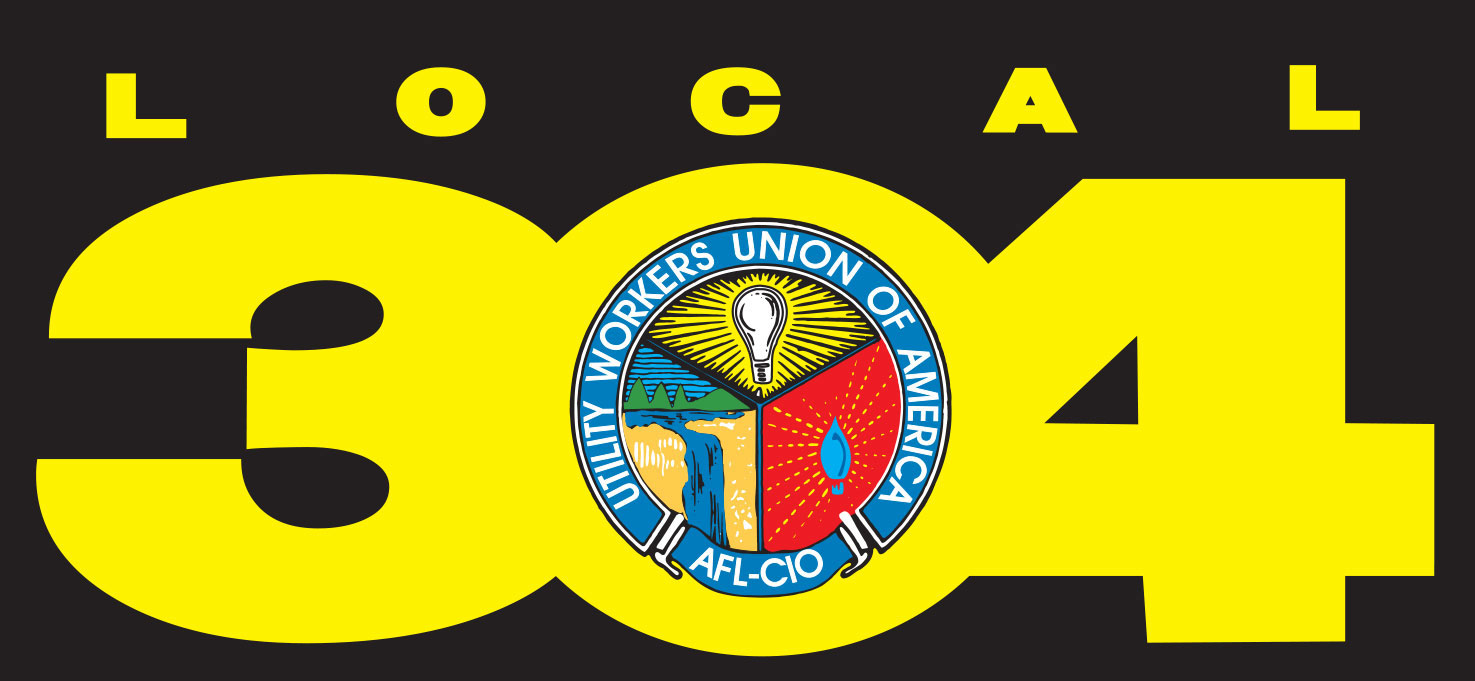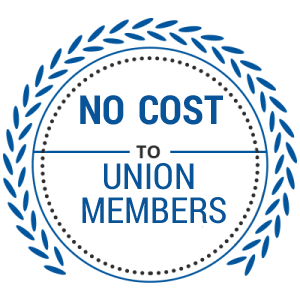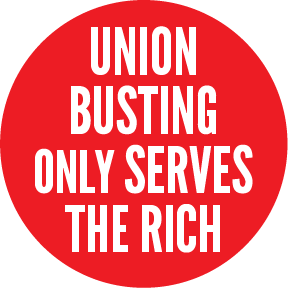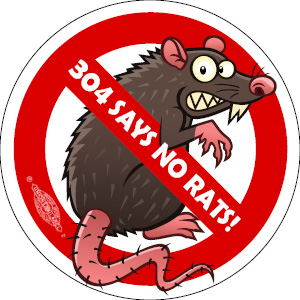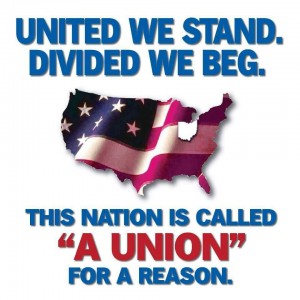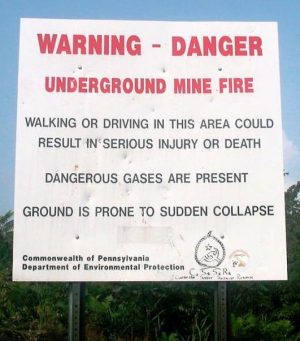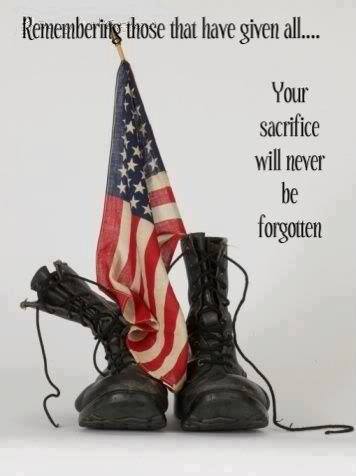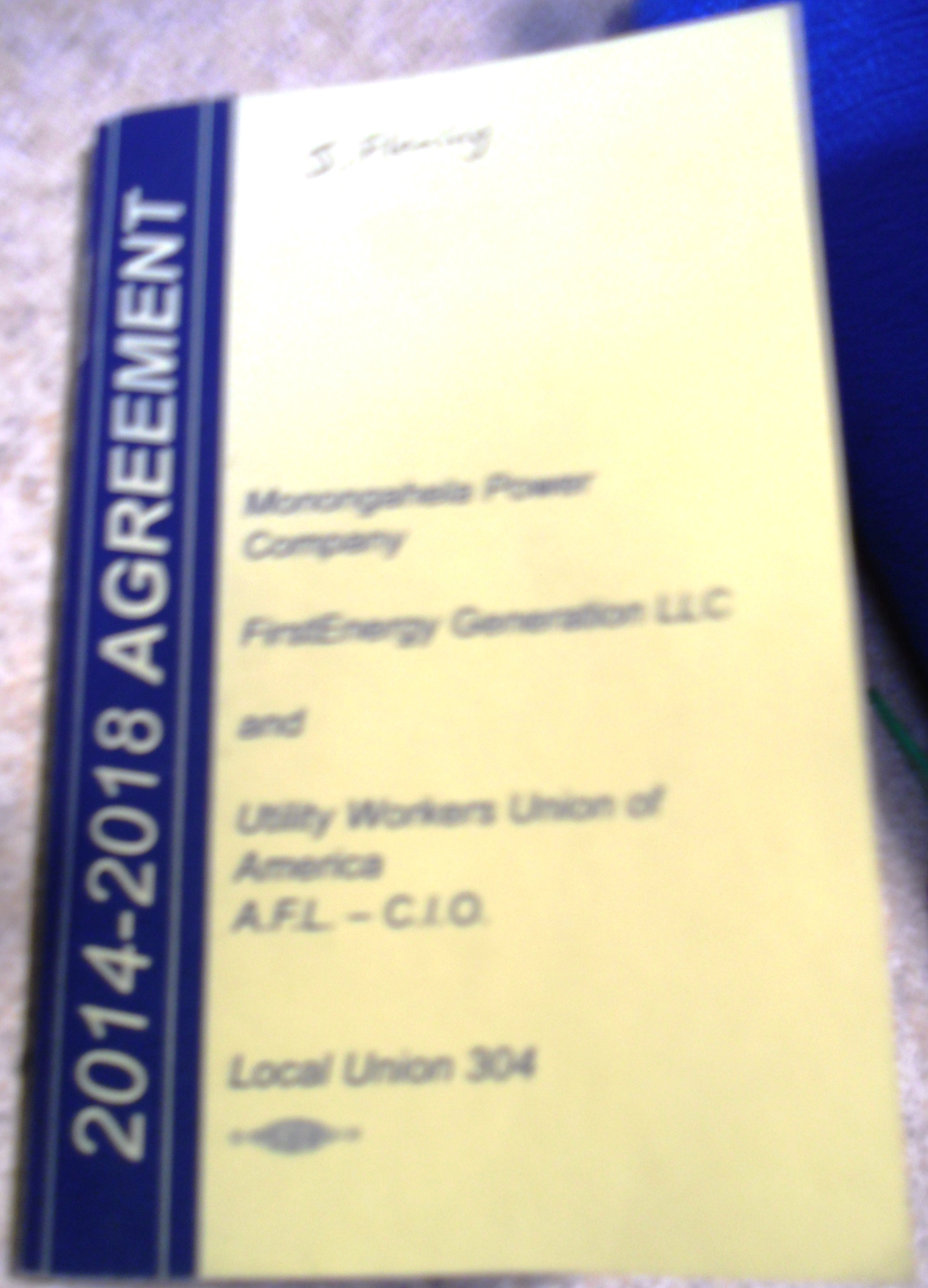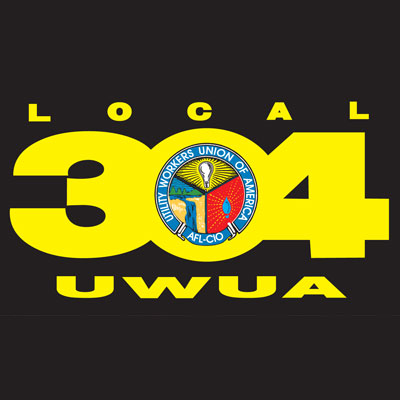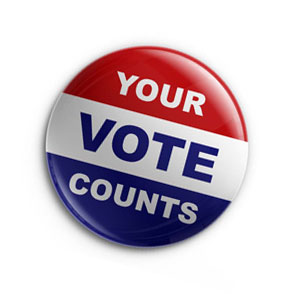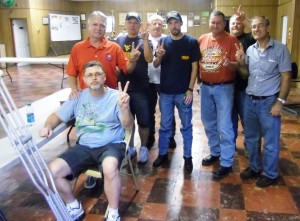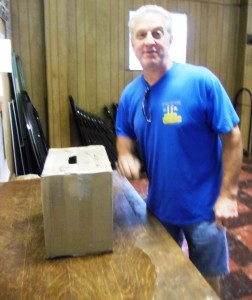Your Union Hall is YOURS!
Thanks to the UWUA Local 304 members, your union has made the union hall our own. Your union officers have been busily sorting and filing almost 15 years of records concerning bargaining, NLRB charges, grievances, and other accumulated correspondence that is a part of the work of serving and protecting our membership.
15 years is not a typo, though our union wasn’t certified until 2010, there is also of years of records from the switch from Allegheny to First Energy, as well as all the files from our organizing drive. Having a union hall of our own allows us to do this, as a benefit to the membership, but, the hall itself is YOURS.
Having a union hall of our own allows us to do this, as a benefit to the membership, but, the hall itself is YOURS.
If you are a member in good standing, you can use the union hall for your own activities. Whether it’s a birthday, anniversary, a dinner, a business meeting, or other instances in which an office or meeting setting is needed. Your hall has Wi-Fi, a printer and FAX machine, tables, chairs, a kitchen, all at your disposal.
All you have to do is contact an Executive Board Officer to schedule the use of the hall. As long as your request doesn’t conflict with your union’s business needs on the date of your event, an Officer or Trustee who are key holders, will make sure you have access to the hall.
The only restriction is common sense in assuring that your use of the hall is for wholesome activities that do not conflict with the Union’s and Labor’s primary missions of representing workers, or are in conflict with the U.S. Constitution, the Constitution of the Utility Workers Union Of America, AFL-CIO, and/or UWUA Local 304’s By-Laws and collective bargaining agreement.
Anyone using the hall will be responsible to leave it clean and well-ordered upon completion of their use and that any member using the hall will be responsible for any damages caused by them or their guests.
Being a Union Is All About Making Things Better
 At January’s Regular Meeting, we got our first glimpse of the process we have to follow to offer our membership healthcare through our union. The CEO, Mr. Elliot Dinkin, from Cowden Health and Welfare Consulting Services gave a presentation of what we can expect as we navigate through the process of being able to offer the membership a more affordable choice in their healthcare plans.
At January’s Regular Meeting, we got our first glimpse of the process we have to follow to offer our membership healthcare through our union. The CEO, Mr. Elliot Dinkin, from Cowden Health and Welfare Consulting Services gave a presentation of what we can expect as we navigate through the process of being able to offer the membership a more affordable choice in their healthcare plans.
Senior Consultant, Jessica Grande, was also there to answer members questions, which there were some very good ones asked,
Cowden administers the healthcare plan for our brothers and sisters in UWUA System Local 102, and have for the last three (3) years. Even before Harrison went with the UWUA in 2010, we have always envied the healthcare plans available to 102 members as compared to what the company offered, and wondered why we didn’t have the coverage and options that 102 members enjoyed.
UWUA System Local 102 President Travis Beck has been very welcoming and helpful to Local 304 as we begin this journey, and we will owe 102 many more thanks before we are done.
The process itself is all about participation. You will be receiving a questionnaire from Cowden to fill out and submit so that they have the data to shop the multitude of healthcare providers for a quote and options for the membership.
It DOES NOT matter if you are a dues paying member in good standing or not, or if you opt out of our current FE coverage for that which is available to your spouse through their employer (such as PEIA). It is vitally important that you fill out the questions and submit them so that we can have an honest snapshot of our membership and their family’s healthcare needs and to offer you, as a UWUA member, a competitive choice.
What is important is that we get an accurate quote for whatever plans available to our membership.
Those who have opted out of their union dues obligations will not have a vote in this, when the time comes to decide if this is what we want to do, but will still have the benefit of whatever plans are offered and that they choose to enroll in.
We have said it all along that being UNION is all about participation and at no time has YOUR individual participation been so important. If you want something better, you have to take ownership of whatever things you CAN control instead of just riding along.
Talk to one of the members who were at the meeting, and take action to help yourself and your Brothers and Sisters.
Click the above highlighted links for more information.
Union Members Legal Recognition
It’s easy to sit back and complain and ask what your union dues actually do for you. The answer is even easier; your status as a union member gives you protected legal status under federal law.
Here is a brief rundown of some of the main laws that enshrine your rights as a union member:
1932 Norris–LaGuardia Act
- Stated that workers had a legal right to organize
- Made it more difficult to get injunctions against peaceful union activities
Before this act, union organizers, ,supporters, and sympathizers were labelled “Reds”, “agitators”, and were often harassed, beaten, and even killed for attempting to organize a union.
1935 National Labor Relations Act (or Wagner Act)
- Made it illegal for employers to discriminate based on union membership
- Established the National Labor Relations Board to investigate unfair labor practices
- Established a voting procedure for workers to certify a union as their bargaining agent
- Required employers to recognize certified unions and bargain with them in good faith 1938 FLSA
- Banned many types of child labor
- Established the first federal minimum wage (25 cents per hour)
- Established a standard 40-hour workweek
- Required that hourly workers receive overtime pay when they work in excess of 40 hours per week
This is the Act that gave unions the “teeth” to protect their members by providing a legal framework to address grievances and a legal remedy that hold employers accountable to he membership.
1947 Labor–Management Relations (Taft-Hartley) Act
- Identified unfair labor practices by unions and declared them illegal
- Allowed employers to speak against unions during organizing campaigns
- Allowed union members to decertify their union, removing its right to represent them
- Established provisions for dealing with emergency strikes that threatened the nation’s health or security
This Act hold unions responsible to the membership, as well as America’s union workers responsibility to national security in times and national crisis. This is because many of this nations most important industries rely on skilled union labor. This Act was considered anti-union at the time and is still controversial.
1959 Labor–Management Reporting and Disclosure Act (or Landrum–Griffin Act)
- Guaranteed rank and file union members the right to participate in union meetings
- Required regularly scheduled secret ballot elections of union officers
- Required unions to file annual financial reports
- Prohibited convicted felons and Communist Party members from holding union office
In the shadow of McCarthyism, this Act settled, once and for all, that workplace democracy is NOT socialism or communism, as many anti-union profiteers had long accused them of being.
Unions are often criticized as being “political”, but it’s in the political arena that union rights are kept and maintained. Many of these Acts were passed under President Franklin Delano Roosevelt’s Administration, under his New Deal policies.
 FDR ascended from American aristocracy, yet his New Deal programs made many wealthy and powerful men to accuse FDR and being a traitor to his class. There even many serious plots to depose FDR and replace him with a fascist, or puppet regime. These plots were heavily financed and well laid out by the powerful industrialists of the day (for more information, read Sally Denton’s The Plots Against The President).
FDR ascended from American aristocracy, yet his New Deal programs made many wealthy and powerful men to accuse FDR and being a traitor to his class. There even many serious plots to depose FDR and replace him with a fascist, or puppet regime. These plots were heavily financed and well laid out by the powerful industrialists of the day (for more information, read Sally Denton’s The Plots Against The President).
All these laws have been under attack ever since, except those who wish to destroy organized labor learned lessons from union organizers and began multiple campaigns to control and manipulate information, fear, traditionalism, and righteous outrage of YOU, the individual worker and voter, to vote away your protections and rights.
As a union member, it is your duty, to yourself, your family, your union, and your country to be on guard against those who would spread “fake news”, lies, and conspiracies that may lead you astray.
Union members, as well as all Americans, know how to fight, and once committed to a fight, they are passionate, relentless, and strong in united voices. It’s important that we rally around the right things, based on solid facts, and act in solidarity by realizing the things that unite us far outweigh the the issues that our enemies use to try and divide us.
You Against “The MATRIX”!
Working for a multi-billion dollar corporation puts you at an extreme disadvantage if, somewhere along the line, you and the company should have a disagreement. After all, the company employs a whole department of legal professionals in every legal area in which they presently or may operate. This vast network also has all the consultants, advisors, paralegals, and clerical staff to make sure he company is protected from any kind of malfeasance, negligence, or responsibility in the things it does to do business in the manner they see fit. This means externally, with customers, regulators, municipalities, and state and federal government officials; as well as internally, like dealing with unions, contracts, and employees.
In furtherance of the latter, the company’s legal teams weave a web, or “matrix”, of company policies, programs, and guidelines that you, as an employee, must follow when doing your job. Each one of these rules and regulations form a gauntlet you have to run each day as an employee, and are usually cloaked with religious fervor under the word and term, “SAFETY.”
Trouble is, almost NO HUMAN can know, adhere, and navigate this “matrix” and get any job done. The company knows this because they designed the system to ensnare you if something should happen while you are at work. No matter how conscientious, responsible, or cautious you may be, it only takes one slip to start a chain of actions that, in the end, will ALWAYS find YOU at fault.
If there is one and only one reason why it’s so important to have a union, this is it!
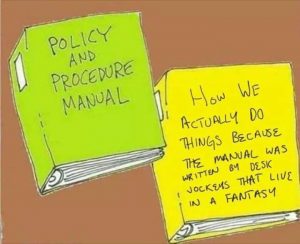 Without a union, you can sue the company. In the end you’ll end up terminated, usually for no cause, and then spend the next decade fighting them in court until any settlement you reach will be a zero sum gain after the lawyers and creditors you couldn’t pay while fighting come looking to collect. This happens all the time, and especially so among large corporations.
Without a union, you can sue the company. In the end you’ll end up terminated, usually for no cause, and then spend the next decade fighting them in court until any settlement you reach will be a zero sum gain after the lawyers and creditors you couldn’t pay while fighting come looking to collect. This happens all the time, and especially so among large corporations.
A union will bring all the resources, local, national, and even international that they have in coming to your defense, and, if not successful, protect your job and assist the private counsel if you decide to fight on your own.
Take the time to study your Personal Safety Manual, and read up on the tenants of Human Performance and behavior based safety. After you get done with that, pull up the company’s Corporate Policy Letters, and take a closer look at the “safety” programs they have published for all employees too see.
The company is betting you won’t bother, which is why one of the first statements to employees is that ignorance of this material is no excuse for violating any of them.
Think about this the next time you tag something out, or put a wrench on a bolt, or have to fill out a form for line breaking or hot work. Confined spaces and equipment operating procedures are perfect examples of signatures being more important than safety. How many liquid transfer papers do operators fill out for lime, urea, acid, oil, hydrogen, and other bulk deliveries.
Each one is a potential grenade that could go off in the hand of the person holding it.
Don’t Take What You Have For Granted!
Division has infiltrated almost everything in our lives. Much of the fuel that fires those passions that causes such splits are being carefully manipulated and fanned into a white hot inferno that destroys families, friendships, churches, as well as erosion to all three branches of our democracy.
The same forces have also had an effect on American Organized Labor. All unions derive their power from the cohesive solidarity of its membership. This is why corporations spend millions to fight unions and even more to lobby for “right-to-work” laws to weaken and destroy unions.
On a national level, you can take your pick among a multitude of topics from abortion to xenophobia, and anything in between. Social media has opened up avenues of communication that weren’t previously unavailable, or even imagined Whatever platform you subscribe to allows you international exposure to air whatever grievance, opinion, or idea that may occur to you. You would think with the increase in interactions that it would lead to a more well informed society.
All these options have only served as avenues for misinformation, bigotry, misogyny, and plain old stupidity to spread, infect, and flourish. This isn’t meant to offend anyone reading this, but if it does, then that’s too bad. An apology is not forthcoming.
The facts are that our power plant is ripe to be bought or sold. Still, UWUA Local 304 is actively shopping for better healthcare coverage for our members, are constantly pursuing our members grievances, and working to protect our members. We have fought against policies and rules aimed at negating your sick time and time off. We’ve fought to keep your personal medical information private and YOURS. We’ve fought when overtime was lost or not properly paid. We’ve fought to allow our members the right to transfer to other departments instead of being “silo’ed” into a “Career Path”. It serves no purpose for your union to boast it’s accomplishments, but they are covered in our regular meetings.
We have, in our union, members who were long time members in other unions who are now dropping dues, thanks to the law that conveys NO RIGHTS, nor creates ANY WORK. We have other members who grew up in union families and it was union wages that paid for everything that sustained those families. They are basi
cally cutting the throats of of their fellow coworkers, and handing leverage over to the company at a time when there are only TWO plants left.
There are plenty of excuses. Some cite personality clashes with various union officers, some accuse the union of reckless spending in securing a union hall for the union to do business out of, some point out a specific minor point like not announcing vote counts or complaining about work schedules. On the other side are those who claimed they would’ve come to meetings if we weren’t having them in a ‘bar” atmosphere. The excuses don’t matter; either you’re UNION or not.
Most of these people are the very same ones that you NEVER see at a union meeting, they offer nothing for the good and welfare of the local or membership, refuse to serve as an officer or on a committee, and won’t even defend the union among their own coworkers. Yet they are quick to spew about everything that’s WRONG with 304, yet they have no participation or ideas to further a cause that is in EVERYBODY’S best interest.
Unions are not perfect. They are the purest form of democracy, which is in itself imperfect. Your union is the only organization that is on your side if something catastrophic happens at work that threatens your ability to support yourself and your family. There in nobody else, as imperfect as 304 may be, who will bring all the available resources to your defense.
UWUA Local 304 was organized and certified because of a lack of trust employees had in the unknown entity that was First Energy. Over the past decade, the employees have changed throughout the plant, as well as the company, but, nothing has happened to prove those initial organizers conclusions wrong; quite the opposite, if you pay attention to the news.
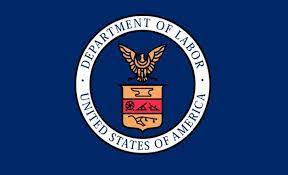 There are things that can only be done by the union that cannot be effectively done by an individual employee on their own. Whether it’s testifying before Congress, as our first President did, or before the State Public Service Commission, or other public and private entities. Don’t believe it? Call the National Labor Relations Board and tell them you want to file a complaint against your employer. The first question that they will ask you is, “are you represented by a union…”
There are things that can only be done by the union that cannot be effectively done by an individual employee on their own. Whether it’s testifying before Congress, as our first President did, or before the State Public Service Commission, or other public and private entities. Don’t believe it? Call the National Labor Relations Board and tell them you want to file a complaint against your employer. The first question that they will ask you is, “are you represented by a union…”
Yet, there are those among willing to sell their souls to the devil and place their full faith and trust in those who would sacrifice them on the altar of position and power without a second thought. One of organized labor’s favorite axioms is, “the boss is not your friend.”
While we cannot discriminate against those who opt out, but neither do we have to treat them as friends. Letting someone politely know you disapprove of their choice to not pay dues is fine, if you can do so in a non-confrontational manner.
The cruel fact of Right-To-Work is that it acts as an escape hatch for those who are all about themselves despite the cost to anybody else. That’s why the excuses don’t matter. Our dues are dirt cheap when compared to those paid by union members in the trade unions. That’s because belonging to the Utility Workers of America, and Local 304, isn’t about the money. It’s about the dignity and respect for those who do the work and collective action to improve those lives that we have the honor of representing.
There are departments at our plant who are recognizing the full benefits of being union. Through solidarity and trust in each other, these departments have built a true brotherhood in their areas. They trust each other, look out for each other, and stick together when any one of them are threatened. The ironic thing is that some of those work centers were true and faithful pockets of anti-union influence in previous union drives.
The cure to inoculate yourself from peer pressure and a charm campaign of a supervisor is to take the time and read your Collective Bargaining Agreement, and if there is even ONE thing in there you wouldn’t want to lose, you may want to re-examine your allegiances and actions at work and in your union.
We, as a union, could have the same conditions throughout the plant, and make UWUA Local 304 unassailable by any local or corporate management. The choice has always been with the membership because members run this union.
Biggest Coal Polluter Isn’t Power Plants
Coal has been around forever, and thanks to new technology, better metering, and better scientific and engineering practices, it’s cleaner to burn than ever in our human history.
There is one coal user that is totally unregulated and free to burn without ANY of the safegaurds and processes used in the power industry and it’s the Earth!
There is a coal fire that has burned underground in Brennender Berg, Germany for over 300 years! The story starts in the year 1688, when a shepherd started a fire in a tree stump that burned to the roots, igniting a coal seam. The translation for the name of the town is, “Burning Mountain.”
Smoking Hills, Canada, is located close to the Artic Ocean, near Franklin Bay. John Franklin first explored the area in 1826, noting a haze that seemed to be hanging in the air. That haze was actually smoke from a chemical reaction between the lignite, sulphur, and oil shales in the area that caused spontaneous combustion.
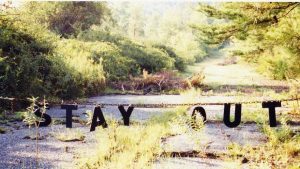 On the other side of the world is Burning Mountain, Australia, or Mount Wingen. Scientist speculate that this underground coal seam fire, that’s 2 meters thick, has been burning between 5.000-15,000 years.
On the other side of the world is Burning Mountain, Australia, or Mount Wingen. Scientist speculate that this underground coal seam fire, that’s 2 meters thick, has been burning between 5.000-15,000 years.
Closer to home is Centralia, PA, which lies outside of Wilkes-Barre, PA. The town decided to burn down it’s garbage dump in the early 1960’s. Little did they know that there was an exposed coal seam on one side of the piles of refuse. To make a long story short, the seam caught fire, the fire spread underground, and the town had to be abandoned in the mid 1980’s for the sake of public safety. The fire still burns today, over 50 years later.
On almost every continent on Earth, there are underground coal fires raging, unchecked, under the often serene and picturesque landscapes. According to the U.S. Geological Survey, between 10 and 200 million metric tons of coal is consumed annually by underground coal fires. The U.S. Department of the Interior Office of Surface Mining Reclamation and Enforcement spends a billion dollars a year on remediation efforts related to coal fires in our country’s 15 coal producing states.
 The real problem is that there is not one specific way to effectively fight underground coal fires. The best scientist can hope for is to identify where the fires are and then try to seal any vents to the surface they can find. They do this with ground penetrating radar and via heat seeking satellites.
The real problem is that there is not one specific way to effectively fight underground coal fires. The best scientist can hope for is to identify where the fires are and then try to seal any vents to the surface they can find. They do this with ground penetrating radar and via heat seeking satellites.
Underground coal fires represent a significant hazard to any life that lives above them. In St. Louis, there is an underground coal fire that is moving towards a nuclear waste dump. The nuclear material is the waste byproducts of America’s Manhattan Project from WWII. A lady in St. Louis developed alopecea, an auto-immune disease sometimes referred to as spot-baldness, claiming it was from the emmissions from the underground coal seam fire where she lives.
 In Glenwood, Colorado, an underground coal seam fire that has been burning for nearly a century reared it’s ugly head in 2002, setting thousands of acres of forest afire.
In Glenwood, Colorado, an underground coal seam fire that has been burning for nearly a century reared it’s ugly head in 2002, setting thousands of acres of forest afire.
Here locally, many locals can identify places that occasionally flare up from underground fires. One recently popped up beside Rt. 250, in White Hall. There’s another just over the hill from the power plant, just before the bridge at Gypsy, behind the log church. More sites can be found on the WV DEP’s website, under Office of Abandoned Mines Land and Reclamation.
The really puzzling thing is that there has been very little study as to the long term health effects and environmental impact of these fires by any agency, nor any patented and effective approaches to extinguishing these types of fires.
It is kind of hypocritical for the EPA and environmentalists to be so aggressive towards coal users and producers, when there are coal fires out there raging unchecked. It would seem to be common sense that a responsible and vibrant coal industry would be the best vangaurd for monitoring and understanding underground coal seam fires.
With all the hostility against coal powered generation, it makes you wonder if the objections raised by environmentalists are genuine concerns or just an avenue for revenue for those who claim to be against coal.
Afterall, the reclamation of mines and the extinguishing of such fires would accomplish removing tons of carbon pollution from the air, employ people in doing that work, and make such lands available for develpment. All of this would act to boost the economy and clean up the environment.
Why Veterans Make Lousy Job Candidates
It seems odd, with all the “support our troops” rhetoric, and with the reputation and the well deserved respect our military veterans have garnered, that it would be hard to believe that any veteran would have trouble transitioning into civilian jobs.
Many of America’s most successful companies got where they are at with the talent and skills of their veteran employees. So much, that hiring such people used to be considered a ‘no brainer’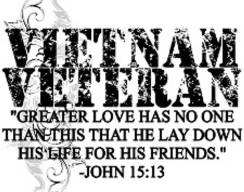 .
.
So why must veterans need advocacy groups and tax credits to be considered for hiring? Why would a company need to be bribed with tax advantages to hire veterans?
Could it be as simple as this: employers look for and enjoy hiring people who are easy to dominate and intimidate?
Veterans have proven leadership skills (it’s almost unavoidable). They have agile and trainable minds, They often have skills that translate either specifically or generally into the civilian job market. They understand the importance of structure and a defined chain of command. They are disciplined, professional. and driven individuals who not only push themselves, but inspire others around them by their example.
It would seem that all these qualities would make them an excellent candidate for whatever career they choose.
Many excuses have been offered as to why veterans aren’t successful applicants. Non-verifiable resumes, a lack of work experience outside their military service, the possibility of hiring someone who may be a PTSD liability, non-compatible skill-sets between their military vocation and the position they are seeking, and a host of other things that sound plausible.
What no one is talking about is how the current climate in labor correlates to the average veteran.
The current trends in labor are full of incidents of wage theft, union-busting, and worker intimidation. The workplace themselves have seen a decrease in the skilled crafts and work being fragmented into smaller and smaller tasks so as to be completed by lower wage and lower skilled workers, some of which may not even be in or from this country.
The average candidate who is not a veteran has already been exposed to these conditions and accepted them as facts.
A candidate who has served in the military is much more likely to have a more mature and fully developed sense of what is right and wrong. They are also more likely to voice their dissatisfaction over such things and not accept them as business as usual. They are more likely to know and exercise their rights.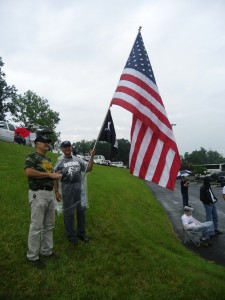
It’s hard to scare someone who’s seen war. It’s hard to get a veteran to accept a manager or supervisor who’s a “paper tiger” when they’ve been exposed to real leadership. It’s hard to apply “divide and conquer” strategies against someone who’s very life depended on the solidarity and trust in his fellow soldiers, sailors, airmen, or Marines.
Most of all, it’s hard to get a veteran to give up the very rights that they fought to preserve. Even the right to form and support a union.
The best way to “support our troops” is by making sure they are coming home to the America they fought for, being the type of American that they are, and then make sure they are not marginalized, discriminated against, or overlooked when they offer themselves and their talents as prospective candidates for jobs in the civilian sector.
Understanding Grievances
For some, the thought of filing a grievance is intimidating.
Some of the things members fear are:
1. Appearing disloyal or ungrateful for their job.
2. Painting themselves as a target for retrobution by management.
3. Alienating their immediated supervisor.
4. Unsure of the grievance process.
5. Not sure of how their issue relates to the language in the CBA (contract).
What is a grievance?
A grievance is any any dispute that reasonably concerns the application, interpretation, or violation of a collective bargaining agreement, past practice, company rules, or statutory law.
What is grievable?
Answer: anything that happens at work- whether it is in the contract or not- is fair game for a grievance. If it affects your pay, working conditions, seniority, or any other mandatory subjects of bargaining that are in the contract, as well as any local, state, or federal laws; it is probably a grievable offense.
Why are grievances important?
 Grievances protects, enforces, and defines the collective bargaining agreement you work under. Grievances are the way a union holds an employer to their obligations and responsibility to their worker, as agreed across the bargaining table.
Grievances protects, enforces, and defines the collective bargaining agreement you work under. Grievances are the way a union holds an employer to their obligations and responsibility to their worker, as agreed across the bargaining table.
You could have the strongest and best defined union contract in the world, but it is not worth anything if the membership is unwilling to hold the employer to their word.
Inversely, a CBA that may fall short in some important areas to the membership can be further defined and enforced to the satisfaction of the membership through the grievance and arbitration procedure.
Collective Bargaining Agreements are negotiated every 3-4 years. In the meantime, it is the the grievance and arbitration process that gives any CBA it’s value.
Who should I talk to if I think I have a grievance?
Your Shop Steward has recieved special training concerning the CBA, latest talks between your union and the company on various subjects, and specifically on processing and handling grievances.
When a Member Gets Hurt on the Job
The following is used with permission and UWUA Local 304’s grateful appreciation for our union Brothers and Sisters of the the UE (“UE” is the abbreviation for United Electrical, Radio and Machine Workers of America, a democratic national union representing some 35,000 workers in a wide variety of manufacturing, public sector and private non-profit sector jobs).
UWUA Local 304 would like to point out that the Union Stewards in the UE do much of the heavy lifting of representing the members, whereas in our Local this has fell primarily to the Executive Board. As a young Local, that was a decision of our local, however, it is the duty and responsibility of EVERY member to safeguard the health and safety of each other, as well as protecting members when they are injured on the job.
The UE’s mantra is; “The Members Run This Union”. We of UWUA Local 304 agree with this philosophy , as well as the precepts laid out in the following UE article presented, unedited and in its entirety below:
Issues
- Safeguarding our members from potential workplace hazards
- Ensuring proper medical treatment/filing an accident report
- Warning against employer tricks to avoid workers compensation
- Negotiating a “light duty” policy
- Employer Obligation to Provide a Safe & Healthy Workplace
Your responsibility as a steward
In 1996, 6.2 million workers were injured on the job. That’s 17,000 each day. In that same year, 6,112 were killed on the job, 154 every day! On top of those grisly facts is another: 50,000 workers die each year from occupational diseases.
As horrible as those figures are, they show progress. The number of workers killed on the job has dropped 67% since OSHA was started in 1970. The injury rate has dropped 31%. These figures are for the areas where OSHA was able to set some real standards – manufacturing and construction.
In the service industry, where the Republicans have held up the setting of OSHA standards, there has been no real decline in accidents since 1970. Congress has stopped the setting of any standards on repetitive motion injuries and these have increased in all areas of work, manufacturing, service and construction.
UE stewards have an important role to play in safeguarding our members from potential workplace hazards or when they get hurt on the job. Here are some pointers on what to look out for when a worker gets hurt on the job.
What Should a Steward Do When a Worker Gets Hurt?
The steward must make sure that the worker gets the proper medical treatment, if any is needed.
In some places the steward has had to intervene because the employer wanted to have an injured worker drug tested before they received medical treatment. Medical treatment comes first.
The steward must also see that a proper accident report is filed when a worker gets hurt, even if no medical treatment is necessary.
Why? If a proper report is not filed and later on a worker begins to suffer because of a workplace accident, the worker may have a hard time proving that their problems are related to a workplace injury. Employers hate to have workplace accidents reported because often times their insurance rates are based upon reported accidents. If the employer acts like they are going to blame the worker for the accident, the steward should make a note of any potential witnesses.
The steward should see that the worker is not talked into applying for sickness and accident payments instead of workers compensation payments.
Many employers try to talk workers into taking S&A instead of workers compensation. In the long run it is cheaper for the employer. We have to remind workers that by taking S&A, they are cutting themselves off from future workers compensation payments if the injury proves to be long lasting or reoccurring.
NOTE: The employer is responsible for seeing that workers receive workers compensation in a timely manner. Don’t let the boss claim that the “matter is out of my hands, go talk to the insurance company.” Many times stewards have found that the boss was secretly telling the insurance company to hold up workers compensation payments in an effort to starve the employee back to work. Keep the pressure on the employer.
Health and Safety is a Grievable Issue!
What About Light Duty?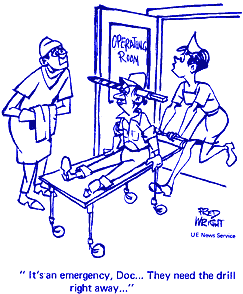
Employers have seized upon the idea of providing “light duty” for workers, mostly to get them back to work, and thereby lowering their reports of long-term injuries.
The employer should negotiate with the union over the establishment of any “light duty” policy.
Because of the employer attacks on workers compensation laws through out the country, many workers cannot afford to stay out on workers compensation. While we understand their desire to return to work quickly, a steward may also have to point out to workers the long-term damage that they might incur by returning to work too soon.
Where performing light duty jobs is not required by state law, the union should insist that it is the employee’s doctor’s decision that is the deciding opinion. Some employers have gone to the extreme of just providing rooms where injured workers sit all day, doing nothing. This is wrong. Often times what a worker needs to recover is rest, not just for the injured part of the body, but for the whole body. Sitting in a room doing nothing is not the same as being home resting.
The employer really is hoping that the worker will get so bored that he or she will beg to be allowed to return to work, even against the doctor’s orders.
If the union negotiates a light duty policy with the employer, it will be the steward’s job to see that it is equally applied. The union has the right to know who the employer wants to bring into work for light duty and who the employer lets stay home.
Many UE contracts have clauses that say that the employer must provide workers with a safe and healthy workplace. In these cases it is very clear what clause of the contract to cite when writing up a grievance about unsafe conditions. If the contract does not have a specific clause concerning health and safety, a grievance can always be filed under the Recognition Clause of the contract. A grievance can also be filed stating that the employer is violating the General Duty Clause of OSHA (Occupational Safety and Health Administration). In some states workers are covered by state OSHA laws. They also have this General Duty Clause. The General duty Clause of OSHA simply states that it is the obligation of the employer to provide a safe and healthy workplace for all employees.
If a worker gets injured and complaints had been previously lodged about the problem with the employer, file a grievance. The union needs to have a written record on cases of employer negligence.
Can a Steward File a Grievance If a Health and Safety Committee Exists?
Yes. Sometimes it is best to try to get the safety committee to take care of the problem, but the Union always has the right to file a grievance over health & safety problems. A grievance should be filed especially if the safety committee ignores the problem.
The stewards must educate and organize the membership to stop employers from paying bonuses or giving out prizes for not reporting accidents.
Employers continue to try to bribe workers to not report accidents. Most times they set up “safety bingo” games, where the prizes get larger every day or week there are no reported accidents. The idea is to get workers to put pressure on themselves and each other not to report accidents. Other employers offer cash bribes to each worker who has no accidents. The outcome is the same. They hope to bribe workers into not reporting or seeking treatment for workplace injuries. Our position should be that safety is not a game.
The steward may have to warn workers who are out from work about employer tricks to cut them off workers compensation.
Many employers routinely hire private investigators to spy on workers who are collecting workers compensation. They sneak around trying to take photos of workers to prove that their injuries or disease are fake. What should workers do to protect themselves? If a doctor prescribes light exercise for a worker who is out with a back injury, that worker should get it in writing from the doctor. These private spies love to take photos of workers doing light work, such as raking leaves. They then use these photos to disqualify the worker or have them fired.
What about part-time work? Many workers have part-time jobs. Tell them to get written clearance from their doctor that it is all right for them to work their part time job. The doctor’s note should say that the part- time work is such that it will not aggravate the injury.
The steward may also have to let the worker know what their responsibilities are to the employer.
In most states workers have to regularly update the employer about their condition and any expected return to work date. The steward should let the injured worker know this, BUT also urge the worker to report to the union any harassment he or she receives when reporting in to the employer. The employee may also be required to see a doctor of the employer’s choosing to confirm the employee’s doctor’s diagnosis. The steward should make sure that the union member knows this BUT also make sure that they know that they have the right to keep seeing a doctor of their own choosing.
NOTE: Workers Compensation laws are different in every state. Whenever possible each UE Local should have at least one person who is an “expert” on the exact laws.
Nominations for UWUA Local 304’s 2022-2025 Term

Nominations for YOUR union’s officers for the 2022 through 2025 term will be help at the September meeting, with elections in Octobers, and the elected representatives assuming their roles in November. We know there will be a lot going on, but this is vitally important.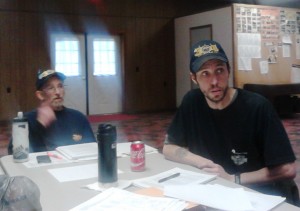
There is not a lot of glory in serving as a union officer, so some would say why would I want to. The pay-off is in knowing you did YOUR part to protect your rights, benefits, and compensation for yourself and your Union Brothers and Sisters.
Being a union officer requires a commitment of time, some of which the union compensates you for and some it doesn’t. It requires discretion in how you conduct YOUR unions business to protect your union’s reputation and the member’s privacy and dignity. One of the hardest things required is discipline and self control. You must be mature enough to recognize what is wheat and what is chaff in the things you deal with within 304 as well as issues you bargain with the company.
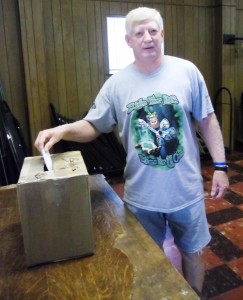 UWUA Local 304 has been very lucky in the officers that have served. Some of them may run again, some will not. Some who serve in one position may vie for another. Some will have an agenda of their own, while most will have the selfless dedication of serving just to be of service to the ideal of unionism.
UWUA Local 304 has been very lucky in the officers that have served. Some of them may run again, some will not. Some who serve in one position may vie for another. Some will have an agenda of their own, while most will have the selfless dedication of serving just to be of service to the ideal of unionism.
Don’t be afraid to talk to current officers or prospective ones. Decide who you will support or if you may even offer yourself for consideration by the membership for a position in the union.
Too many times you’ve heard it said that, “YOU ARE THE UNION”, but truer words were never spoken. Vote like your LIFE and your job depends on it because it probably does!
